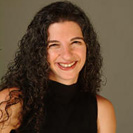“Passing” or “Covering”? Debates over Name Changing in the Years After World War II
Sunday, January 11, 2015 at 11:00 am
Holocaust Memorial Center
Free for members; $5 for guests
Thousands of name change petitions were submitted to the New York City Civil Court during the 1940s and 1950s. A disproportionate number of them were submitted by Jews. Debates over Jewish identity at this time tended to equate name changing with passing and escaping the Jewish community. Rabbi Milton Steinberg, for example, in 1945, called for stronger Jewish identity among Jewish youth, warning that some “Jews change their names, dissociate themselves from their fellows, calculatingly conceal their origin and try to ‘pass.’” Quietly challenging portraits of name changers as “passers,” however, were Jewish voices like sociologist Erving Goffman, who described name changing as a more complex act of “covering”: hiding the most obtrusive parts of a stigma so that they did not impede daily life. My paper will use name change petitions, published writings, and unpublished letters from name changers during the postwar era to suggest that “covering” indeed more accurately reflected the complicated practice of name changing for the majority of American Jews.

Kirsten Fermaglich is Associate Professor of History and Jewish Studies at Michigan State University. Her book on American social scientists and Holocaust metaphors, American Dreams and Nazi Nightmares: Early Holocaust Consciousness and Liberal America, 1957-1965, was published in 2006. She is also co-editor of the Norton Critical Edition of Betty Friedan, The Feminine Mystique (2013). She is currently researching the history of name changing in New York City in the twentieth century for a book tentatively entitled A Rosenberg by Any Other Name.